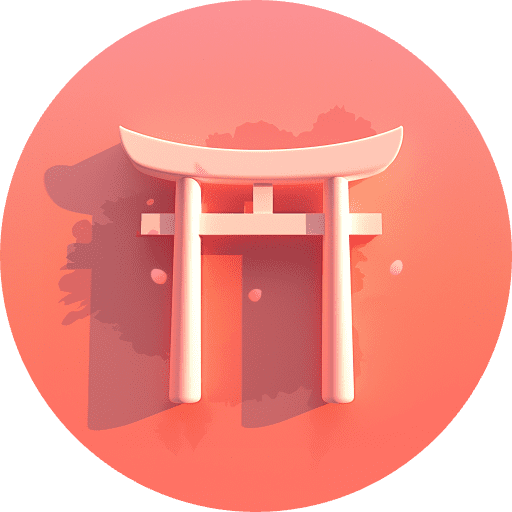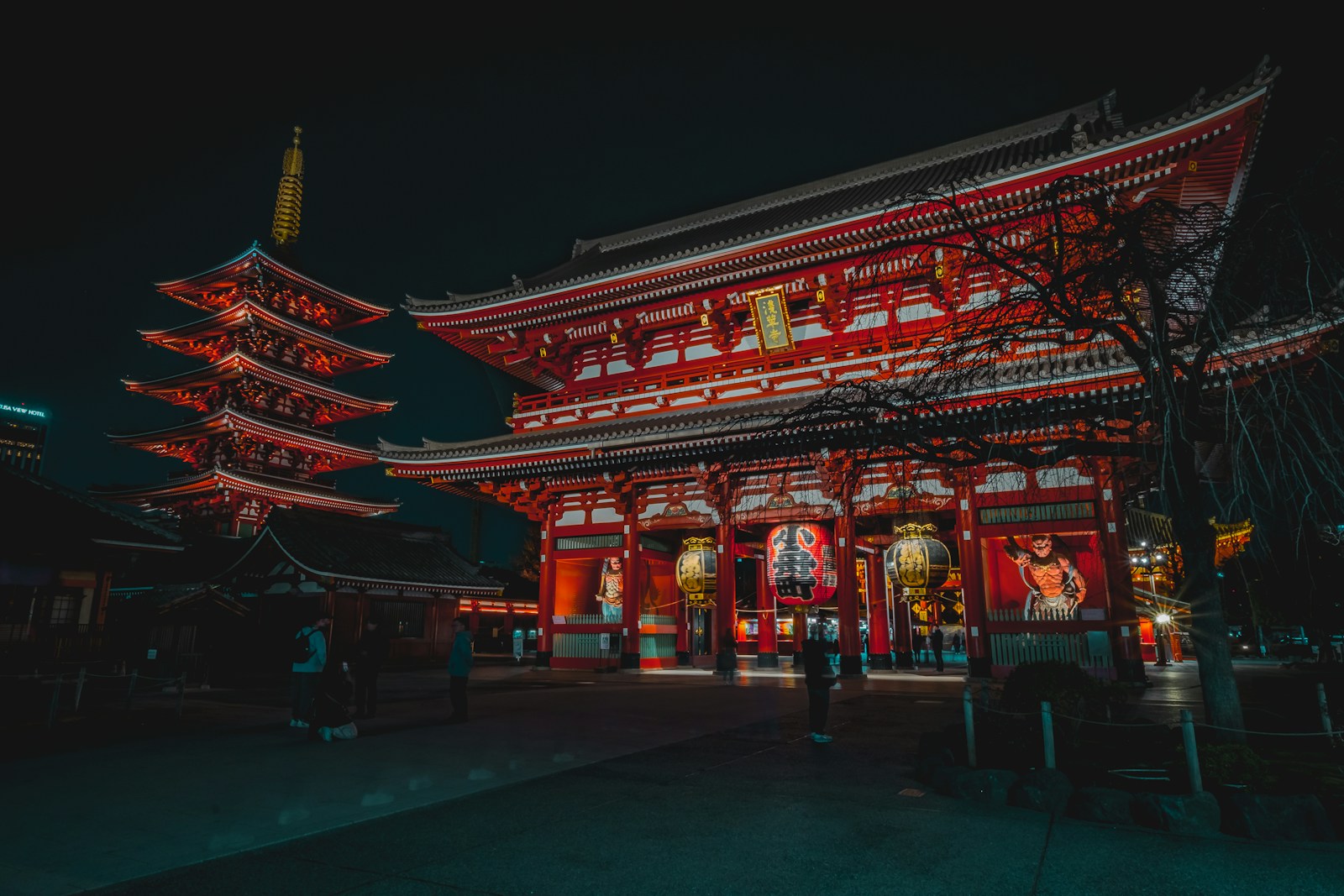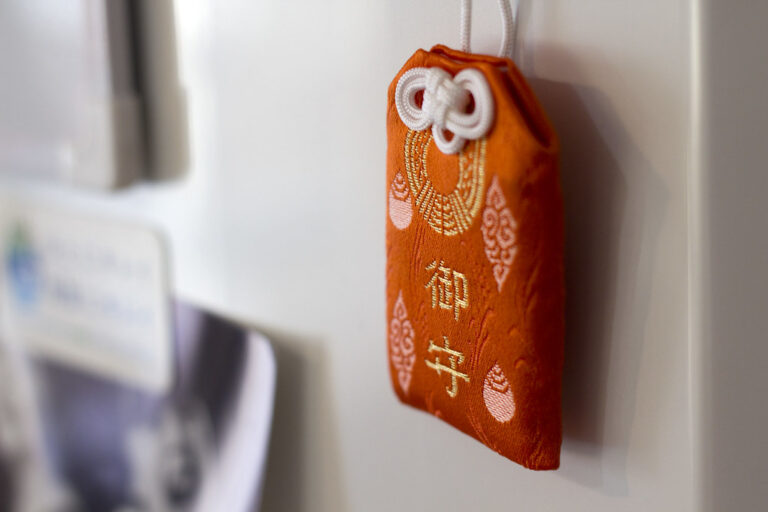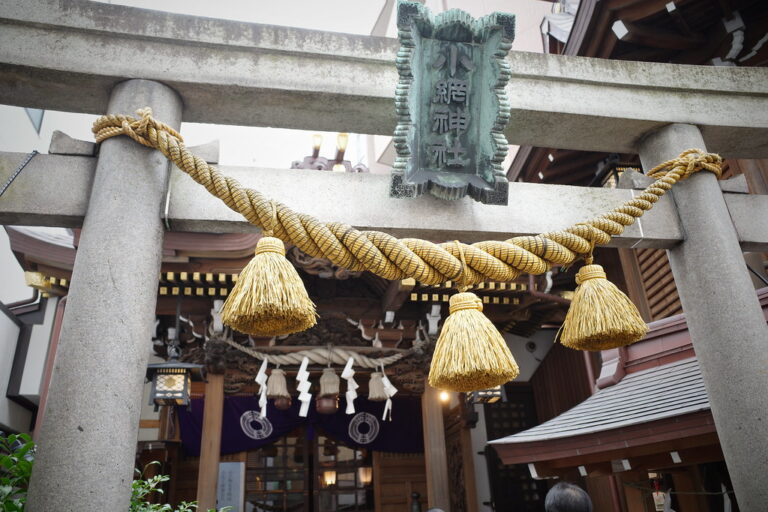Step into the past at Tokyo’s oldest temple, where timeless traditions blend with bustling bazaars under the watchful gaze of the majestic Thunder Gate.
Sensō-ji, also revered as Asakusa Kannon Temple, is not only Tokyo’s oldest temple but also a beacon of spiritual solace, drawing millions annually. This historic temple, founded in 628 AD, is dedicated to Kannon Bosatsu, the Bodhisattva of compassion. According to legend, a sacred statue of Kannon was miraculously fished out of the nearby Sumida River, prompting the construction of the temple. The Thunder Gate, marked by its massive red lantern, serves as a grandiose entryway into a world of spiritual reverence and cultural richness.
Historical Background
The legend of Sensō-ji begins with two brothers who, in 628, discovered a statue of Kannon in the Sumida River. Despite returning it to the water, the statue persistently returned to them, leading to the establishment of the temple in 645. Sensō-ji has endured through many historical events, including near destruction during World War II, yet it remains a cornerstone of Tokyo’s spiritual and community life.
Cultural Significance
Sensō-ji is the heart of the Sanja Matsuri, Tokyo’s largest and most vibrant festival. This event sees the streets come alive with portable shrines and traditional performances, celebrating the communal spirit and cultural heritage of Asakusa. The temple’s Nakamise-dōri, a lively shopping lane, offers an array of traditional Japanese snacks and crafts, capturing the essence of Edo-era commerce and culture.
Deities Enshrined:
Kannon Bosatsu, the goddess of mercy, is the principal deity of Sensō-ji, symbolizing compassion and relief from suffering. Her sacred image, enshrined within the temple, attracts devotees from all walks of life, seeking solace and blessings in their personal and professional endeavors.
Unique Offerings and Festivals:
Sensō-ji is renowned for its dynamic cultural festivals, including:
- Sanja Matsuri: A spectacular celebration involving thousands, held annually to honor the temple’s deities.
- Hozuki Market: Takes place in July, featuring the sale of traditional Hozuki (ground cherry) plants.
- Asakusa Samba Carnival: Blends Japanese tradition with Brazilian flair, held in late summer.
- Omizutori: A spiritual water-drawing ceremony believed to confer blessings as potent as visiting tens of thousands of temples.
Famous for Blessings:
- Health: Individuals come from far and wide to pray for physical and spiritual well-being.
- Prosperity: Entrepreneurs and business owners seek the divine favor of Kannon for business success and financial stability.
- Good Fortune: The temple’s charms and amulets are widely sought after by those wishing to enhance their luck in various aspects of life.
| Address | 2-3-1 Asakusa, Taito-ku, Tokyo, Japan |
| Direction | A short walk from Asakusa Station, accessible via the Ginza Subway Line, Toei Asakusa Line, and Tobu Skytree Line. |
| TEL | 03-3842-0181 |
| Business Hours | Main hall: 6:00-17:00 (from 6:30 during October to March) Temple grounds: Always open |
| Regular Holiday | No holidays |
| Main Blessings | Health, Prosperity, and Good Fortune |




